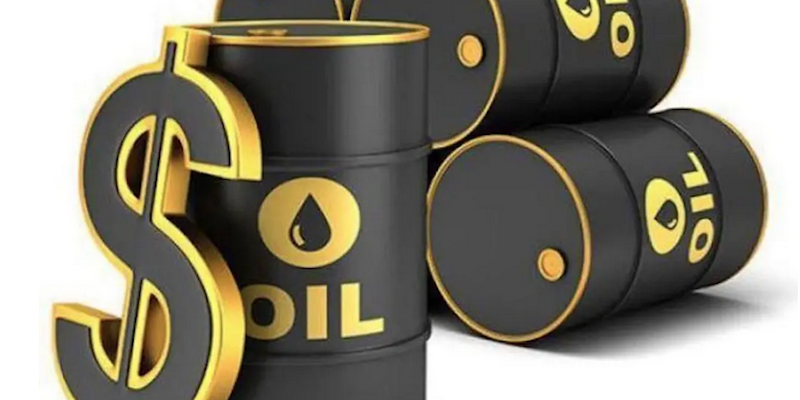Nigeria’s crude oil production has fallen short by 93.74 million barrels within the first eight months of 2025, triggering concerns over the government’s ability to adequately fund the 2025 national budget, which heavily relies on oil revenue.
Data from the Nigerian Upstream Petroleum Regulatory Commission (NUPRC) shows that total crude oil and condensate output between January and August stood at 406.84 million barrels, representing an 18.27 percent deficit against the 500.58 million barrels projected for the period. With an average production of 1.673 million barrels per day, Nigeria fell short of its 2.06 million barrels per day target by about 390,000 barrels daily.
The shortfall translates to an estimated revenue loss of $6.85 billion based on an average Bonny Light crude price of $73.06 per barrel, and about $7.03 billion when measured against the 2025 budget benchmark price of $75 per barrel.
If the current production trend continues for the remaining four months of the year, the nation could lose an additional 47.58 million barrels — amounting to roughly $3.56 billion in unrealized revenue — by year-end.
Breakdowns from NUPRC reports indicate that Nigeria missed its target by 35.01 million barrels in the first quarter of 2025, worth about $2.63 billion, while second-quarter losses amounted to 34.67 million barrels valued at $2.59 billion. In July and August alone, shortfalls reached 24.06 million barrels, equivalent to nearly $1.8 billion in missed earnings.
The revenue implications are already evident in government accounts. According to the Commission’s August report to the Federation Account Allocation Committee (FAAC), oil and gas revenues fell short by ₦459.6 billion against the ₦1.2 trillion target, with only ₦745 billion remitted. In July, remittances stood at ₦723.17 billion — bringing total shortfalls in those two months to ₦941.23 billion.
Although overall federal collections improved slightly by ₦22.04 billion in August compared to July, NUPRC attributed the continued underperformance to weaker royalty inflows. The agency revealed that while ₦1.144 trillion was projected from royalties in August, only ₦682.28 billion was realized.
So far, ₦5.475 trillion has been transferred to the Federation Account between January and August, instead of the ₦8.433 trillion expected from the oil and gas sector, highlighting a massive ₦2.958 trillion gap.
Industry analysts attribute the persistent underperformance to oil theft, pipeline vandalism, declining investment, and regulatory uncertainty. According to Engr. Joe Nwakwue, Partner at Zera Advisory and former Chairman of the Society of Petroleum Engineers (SPE Nigeria), achieving both the price and production targets for 2025 is “most unlikely” given current realities.
“It’s certainly a stretch. Most unlikely, we would achieve both volume and price targets going by current trends,” he said. “However, the growth in non-oil revenue gives a glimmer of hope that the shortfall in oil earnings might be partially offset.”
Similarly, energy economist and CEO of AHA Consultancies, Henry Adigun, criticized what he described as “unrealistic government projections.” He argued that the persistent overestimation of oil production figures has contributed to poor budget performance over the years.
“Every year, they make false assumptions and projections that are unrealistic. This leads to poor budget outcomes because the fundamentals are wrong. We end up borrowing to finance the deficit created by those false assumptions,” Adigun said.
In response, the Minister of State for Petroleum Resources (Oil), Senator Heineken Lokpobiri, maintained that the government remains optimistic about achieving two million barrels per day before year-end. He noted that efforts are ongoing to address financing challenges in the upstream sector through the establishment of the $5 billion African Energy Bank, to be headquartered in Nigeria.
Lokpobiri stated that the initiative would help mobilize domestic and continental funding to support oil and gas investments, saying, “We have met all our obligations, legal and financial, and we expect the bank to take off soon. Our target is to change the game and ensure Africa funds its own energy development.”
Meanwhile, NUPRC’s Chief Executive, Engr. Gbenga Komolafe, reaffirmed the national target of 2.5 million barrels per day in the coming years, adding that the Commission has approved 38 field development plans in 2025 alone, attracting about $19.43 billion in new investments.
Energy experts such as Prof. Wumi Iledare remain cautiously optimistic. He believes that while reaching the 2025 target may be difficult, production could rebound in 2026 if the Petroleum Industry Act (PIA) is fully implemented and governance improves.
“You cannot have 37 billion barrels of reserves and produce just 1.4 million barrels per day. The potential to hit three million barrels exists, but we need institutional discipline, security, and investment confidence to get there,” Iledare emphasized.
With oil remaining Nigeria’s fiscal backbone, the ongoing production shortfalls pose a major challenge to the Tinubu administration’s budget execution and economic stability. Unless theft, vandalism, and funding bottlenecks are addressed, analysts warn that the 2025 fiscal targets may remain out of reach.

Comments